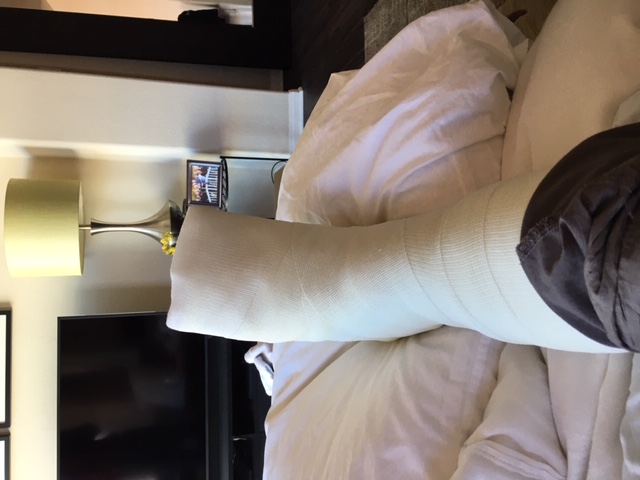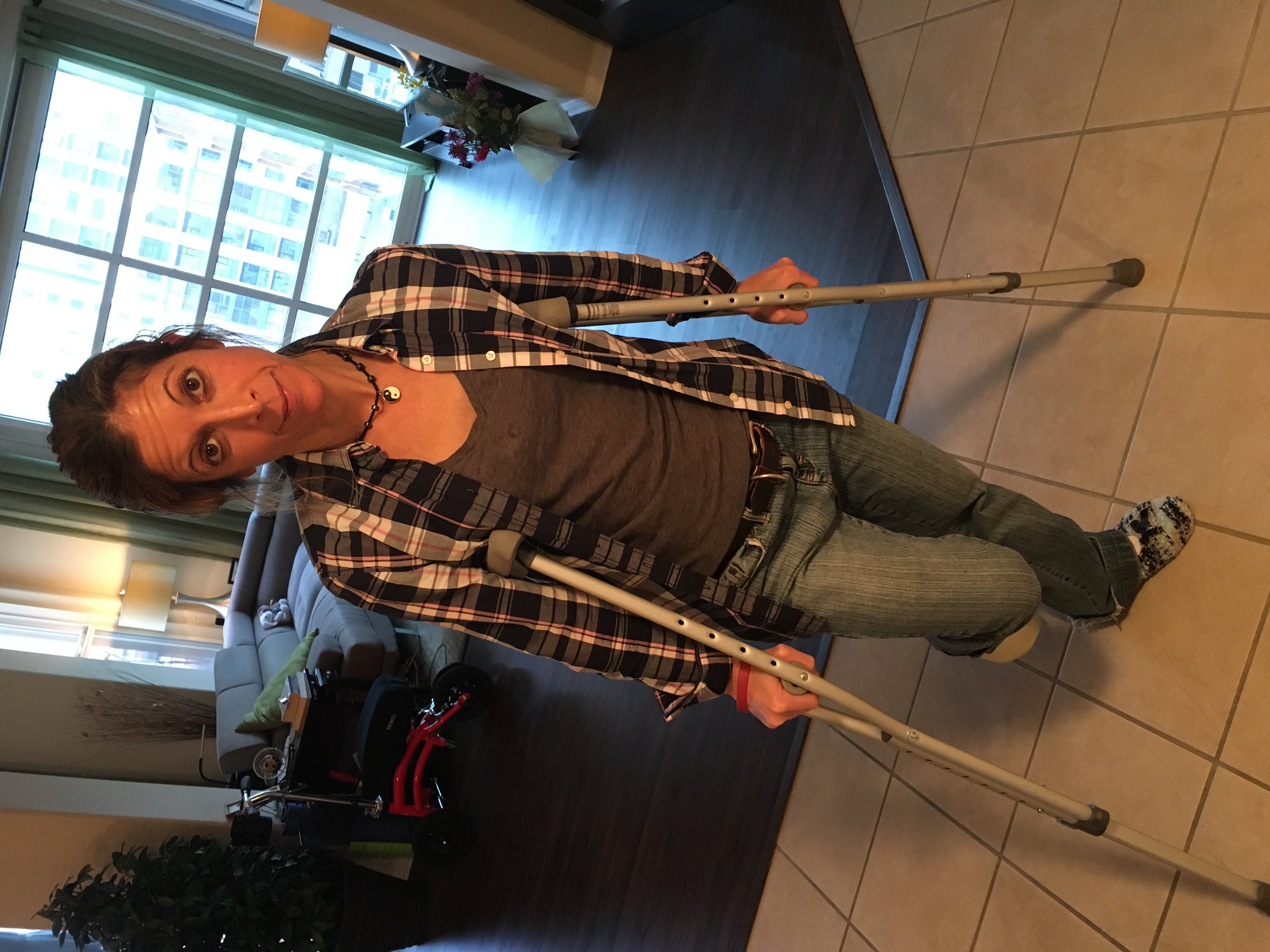So, this happened…

Now that I’ve begun with some melodrama, allow me to bring it down.
I actually chose this situation. It was a planned, fairly major foot surgery that was decades in the making.
One of the reasons I’d put it off is that it’s notoriously gnarly. In fact, many people who’d been in my shoes (so to speak) told me not to have it. They said it was too horrible. Painful. Debilitating.
Needless to say, the nights leading up to it found me sleepless, tossing and turning as I thought about it. Which was bad enough.
But then I made it worse.
I didn’t just think about the surgery. I created a mental novel about it.
Despite not really knowing how it would all go down, I crafted thoroughly terrifying, highly descriptive stories about how much it would hurt. About bad reactions to the meds I’d have. About how trapped I’d feel when I couldn’t walk around by myself.
About how much chafing those crutches would cause. (Okay, that one is true.)

And so, I didn’t just have to deal with the stress of the surgery, but also the stress caused by that very descriptive novel I’d written inside my head.
Even if you’ve never considered yourself a writer, I promise you that you are. We’re all amazing mental novelists. And we engage in it all the time:
- We’re preparing for a big presentation and, in addition to feeling some stress about it, we imagine all of the ways we’ll screw it up
- We haven’t heard from a friend in a while and, in addition to missing them, we make it worse by imagining all of the horrible things we’ve done to offend them
- We upset our boss by missing a deadline and, in addition to thinking through how to address it, we make it worse by imaging just how we’ll manage living on the streets when we get fired
Let me point out, these scenarios will likely not happen. At least not in the ways we imagine. We almost never really know exactly how things will turn out or how we’ll feel. And, even if we do, all that extra novel-writing just adds to the additional, pointless stress.
So why do we do it? Because our minds LOVE to play around with our thoughts. And it focuses on the dramatic genres: the horrors and the mysteries and the tragedies. It’s human nature. But that doesn’t make mental novel-writing a good thing. It’s not.
To be clear, I’m not saying that – when a situation arises and we feel stressed or fearful – we shouldn’t think about it, plan for it, and address it.
What I am saying is that we need to stop there…and quit the storytelling that twists a real issue into some kind of make-believe land of subsequent scenarios and consequences that we can’t possibly predict.
So, how to curtail our inner novelists…especially when we’ve spent a lifetime honing the craft?
A few steps:
1) Pay attention
The most important thing you can do to curb your inner novelist is to be aware when it gets to work. You’ll know because your stress will elevate in direct proportion to the strength of the emotional hurricane your stories create.
2) Name and Break
Name that your novelist is at play. You can even greet it (“Oh, hello Mr. Novelist!”) to lighten things up. The key is that this will break the stream of thoughts that have been taking over. Once you break it, you’ve begun to take your power back.
3) Switch to your inner journalist…
Let your fiction-writer take a break and turn to the facts. Which is that you are facing a situation that you need to address, and how you will do so. That’s it.
4) …then go to the outer world
Get out of that head of yours and focus on something else. Distract as needed – a book, a movie, some music, cooking. You get the gist.
5) Be diligent
Our inner novelists are resilient buggers – popping up at all times – so we have to be as well. So stay alert.
These steps actually worked wonders for me. Heck, I actually switched to my inner journalist while being wheeled into the operating room.
And, in the end, none of those fiction stories about the pain and the meds and the feeling trapped were what I’d imagined.
Plus, I also found a handy solution to that crutch-chafing.

Which, thank goodness, made for the happiest of endings.
PS – This post ties in nicely with a previous post that focuses on the stories we make up when it comes to the other people in our lives. It’s a fan favorite and you can find it here: why you must consider the other option

